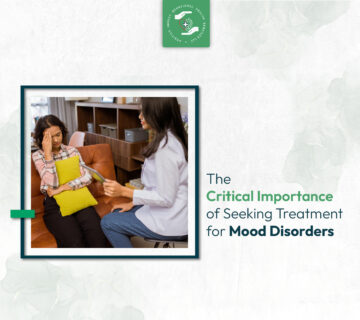Psychoeducational groups are becoming increasingly popular in mental health and educational settings. They provide a unique blend of psychological support and education, helping individuals enhance their understanding of various psychological issues. In this blog, we will explore what these groups are, how they work, and why they are beneficial.
Defining Psychoeducational Groups
Psychoeducational groups are structured groups that focus on educating individuals about specific psychological topics while also providing support. These groups aim to enhance understanding and foster coping skills.
To dive deeper, psychoeducational groups are designed with a dual purpose – education and emotional support. Such groups create a safe environment where participants can not only learn about psychological issues but also share personal experiences and strategies that work for them. This blend of support and education helps participants introduce positive changes into their lives.
The origins of psychoeducation can be traced back to the early 20th century, but the concept gained significant traction in the 1980s, primarily attributed to C.M. Anderson’s work on schizophrenia. Her approach emphasized educating patients and families about symptoms and treatment processes explore more.
How Do Psychoeducational Groups Work?
Typically led by trained professionals, these groups involve interactive sessions where information about a specific topic is discussed. Participants engage in discussions, activities, and sharing personal experiences.
The role of the facilitator is critical in psychoeducational groups. They not only impart knowledge but also guide group interactions, ensuring discussions remain productive and supportive. Facilitators might use various materials like handouts, videos, or guest speakers to enrich the learning experience learn more about the benefits of therapy services.
For a topic like anxiety, a group might explore how to identify triggers and implement coping strategies. Participants may be encouraged to discuss personal experiences or practice new skills through role-playing scenarios. This active participation makes the learning process dynamic and relevant.
Who Can Benefit from Psychoeducational Groups?
These groups are beneficial for a wide range of individuals, including those dealing with mental health challenges, caregivers, and anyone looking to enhance their knowledge and coping strategies.
The inclusive nature of psychoeducational groups ensures that individuals from diverse backgrounds can participate. This diversity enriches the group experience, as each participant brings unique insights and experiences. A well-facilitated group fosters a sense of community and collective understanding among its members.
Families can greatly benefit from attending these groups. Addressing family dynamics and improving communication are common focuses, helping strengthen familial bonds discover strategies to improve family relationships.
Common Topics Covered
Psychoeducational groups may cover topics such as anxiety management, stress reduction, coping strategies, understanding mental illnesses, and communication skills.
The variety of topics covered in these groups reflects the multifaceted nature of psychological well-being. Groups can be tailored to address specific conditions, such as depression or PTSD, ensuring the information provided is both relevant and practical for participants’ needs explore more group topics.
In addition to common psychological themes, some groups may also focus on life transitions, such as divorce or career changes, offering participants tools to cope with changes in their personal circumstances.
Advantages of Participating in Psychoeducational Groups
These groups offer numerous benefits, including acquiring new knowledge, reducing feelings of isolation, developing support networks, and improving overall mental health management.
Being part of a psychoeducational group instills a sense of belonging that can significantly boost one’s mental resilience. This is particularly important for individuals grieving or going through major life changes.
Moreover, these groups can serve as a valuable complement to individual therapy, providing additional support and reinforcing therapeutic concepts in a peer-group setting.
The collective wisdom shared in these settings often transcends what can be achieved in one-on-one therapy, creating a richer fabric of understanding and growth for each participant.
Conclusion: Embracing the Benefits of Psychoeducational Groups
Psychoeducational groups offer a supportive and educational environment where individuals can gain knowledge, develop skills, and find encouragement among peers. They empower participants to face psychological challenges with better understanding and confidence. Whether in schools or therapy settings, these groups serve as a valuable tool in mental health care and education.






No comment